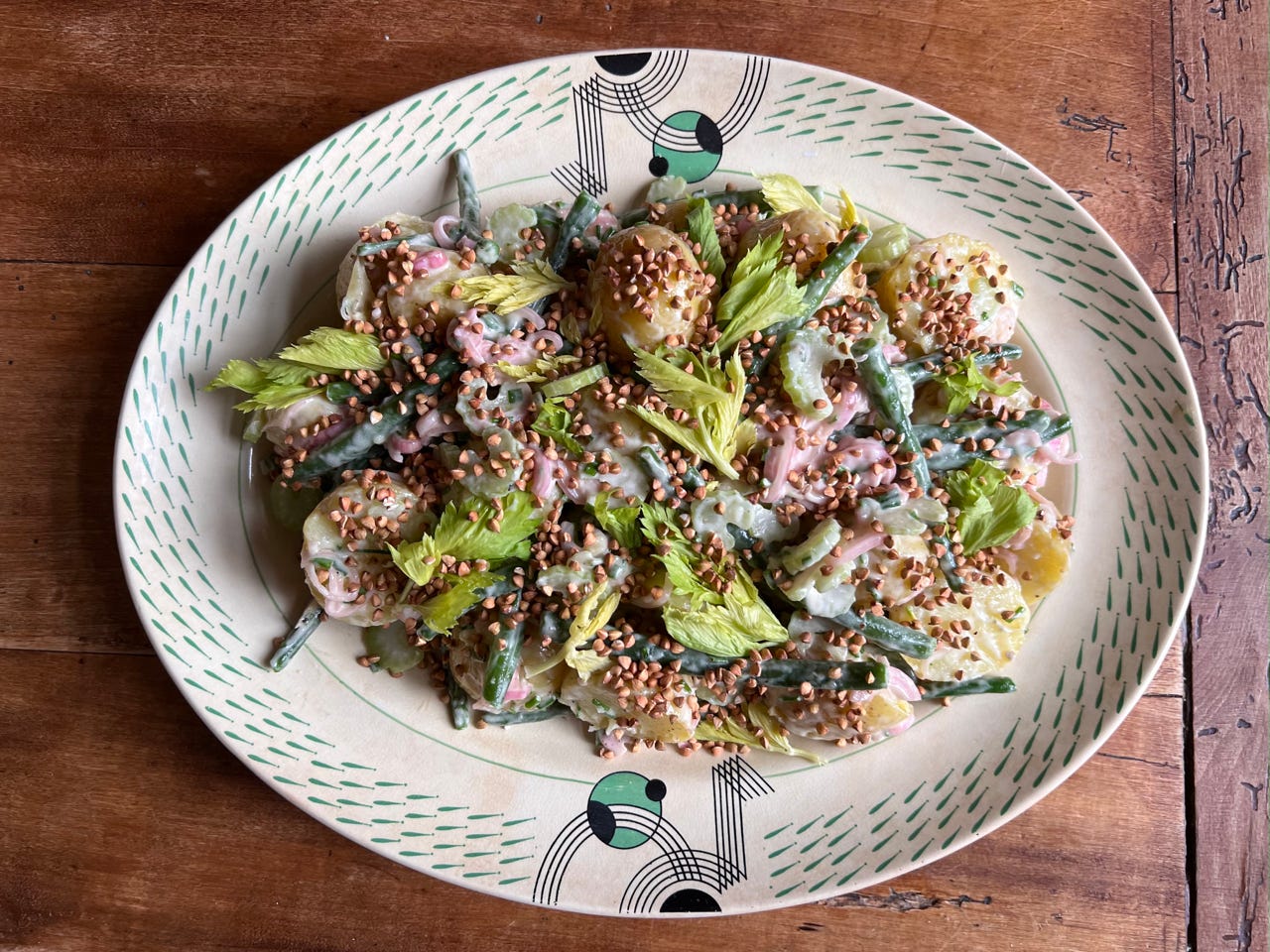So you think you don’t like … celery
Poor old celery. What did it do to deserve such hatred? Yet it’s the perfect veg for summer eating. Read on to be won round ...
Celery has so much going for it I’m mystified why it’s not more popular. It’s low in calories, it’s cheap, it’s healthy, it’s appealingly crunchy … Goodness it doesn’t even taste of much. What’s celery ever done to you?
The only thing you can hold against it is that it can be stringy but you can deal with that. Just check out one of the many videos on YouTube.
Once you’ve done that it’s as tender and crunchy as a cucumber stick, ready to be dunked into tarama or a creamy cheese dip.
I also suggest you slice it so it doesn’t look so, well, celery-like. On the slant looks cooler than chopping it into nobbly little chunks, beautiful though that top image looks. Or even cutting wafer thin slices on a mandolin.
Celery leaves are also rather gorgeous as you can see from this potato salad I made from Joe Woodhouse’s Your Daily Veg which is one of my favourite cookbooks at the moment. OK, the potatoes help.
But it also works really well in a chicken or tuna salad or sandwich filling. (Use the more tender central stalks if you’re eating it raw.) You only need teensy stalk.
Along with its pals, onion and carrot, it’s also one of the key trio of vegetables in the indispensable Italian soffrito the slowly cooked veggies that are at the base of most pasta sauces and stews. (I bet you hadn’t even noticed it was in it your favourite ragu!)
And if you’re going to buy it for that - what are you going to do with the rest of it?
You could add it to a stir-fry for a start. Or noodles, as Hetty McKinnon has done below. Or if you’re feeling more ambitious and have a copy of Meera Sodha’s excellent book East make her celery and peanut wontons with chilli soy sauce. (Celery and peanuts are natural bedfellows, as are celery and cashews)
Think of the recipes you might normally cook with (much more expensive) fennel. Braise it with lemon or with chicken or beef stock in winter. It makes a good side to roast chicken.
Here are six recipes that might convert you
Hetty Mckinnon’s celery, mushroom and leek dan dan noodles
Just the most delicious-sounding recipe. Can’t wait to make it
Celery salad with vierge dressing
This has a gorgeous toasted coriander and herb dressing
Tom Kerridge’s marinated mackerel with green olive and celery dressing
You not only get the health benefits of celery but the benefits of mackerel as well. (Agreed, it’s a problem if you don’t like either 😉)
Tangy potato salad with celery and mustard
Another great-sounding potato salad (can you ever have too many?)
Grilled leek and blue cheese salad with apple, celery and hazelnuts
The classic celery, apple and blue cheese combo elevated into a stylish salad. There’s always a Waldorf too. Check out Felicity Cloake’s version.
NIgel Slater’s celery soup with toasted cheese
In which he roasts the celery which might make you like it more. Especially with toasted cheese …
Are you a celery lover or loather - and if you’re into it how would you convert someone who wasn’t?




I will confess to having been a bit of a sceptic until a few years ago - on the basis it was boring rather than disliking it - but a few recipes changed my mind. First, a Barton Seaver recipe from his brilliant book Where There's Smoke, which combines thinly sliced celery with parmesan, pecans and a lemon / mustard / maple syrup dressing, and then an article in the much missed Lucky Peach regarding celery more generally. I've been trying to paste an image of the Seaver recipe into this post in case it's of interest, but have failed miserably so far. I'll keep trying.
To me, raw celery has a strong distinctive flavour that is quite unpleasant and that clashes with other flavours. It’s a surprise to see it described as not tasting of much. I wonder if, as with broccoli and coriander, your reaction to it depends on your ability to detect a particular chemical. I don’t pick up broccoli’s sulphur compound or coriander’s saponins but I shall never be fond of celery. Adding acid or something hot makes it less overwhelming, but that’s all.
The sense of taste varies as much as our visual and aural acuity, but somehow we tend to expect everyone to taste things as we do. I wonder why